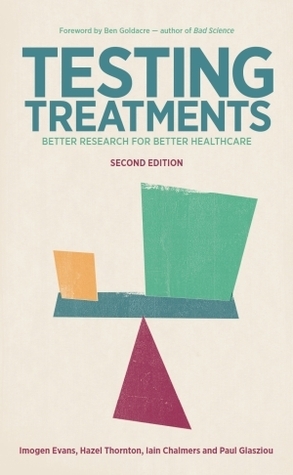What do you think?
Rate this book


199 pages, Paperback
First published April 12, 2006
Since there are drugs that suppress these arrhythmias, it seemed logical to suppose that these drugs would also reduce the risk of dying after a heart attack. In fact, the drugs had exactly the opposite effect ... When the accumulated evidence from trials was first reviewed systematically in 1983, there was no evidence that these drugs reduced death rates.